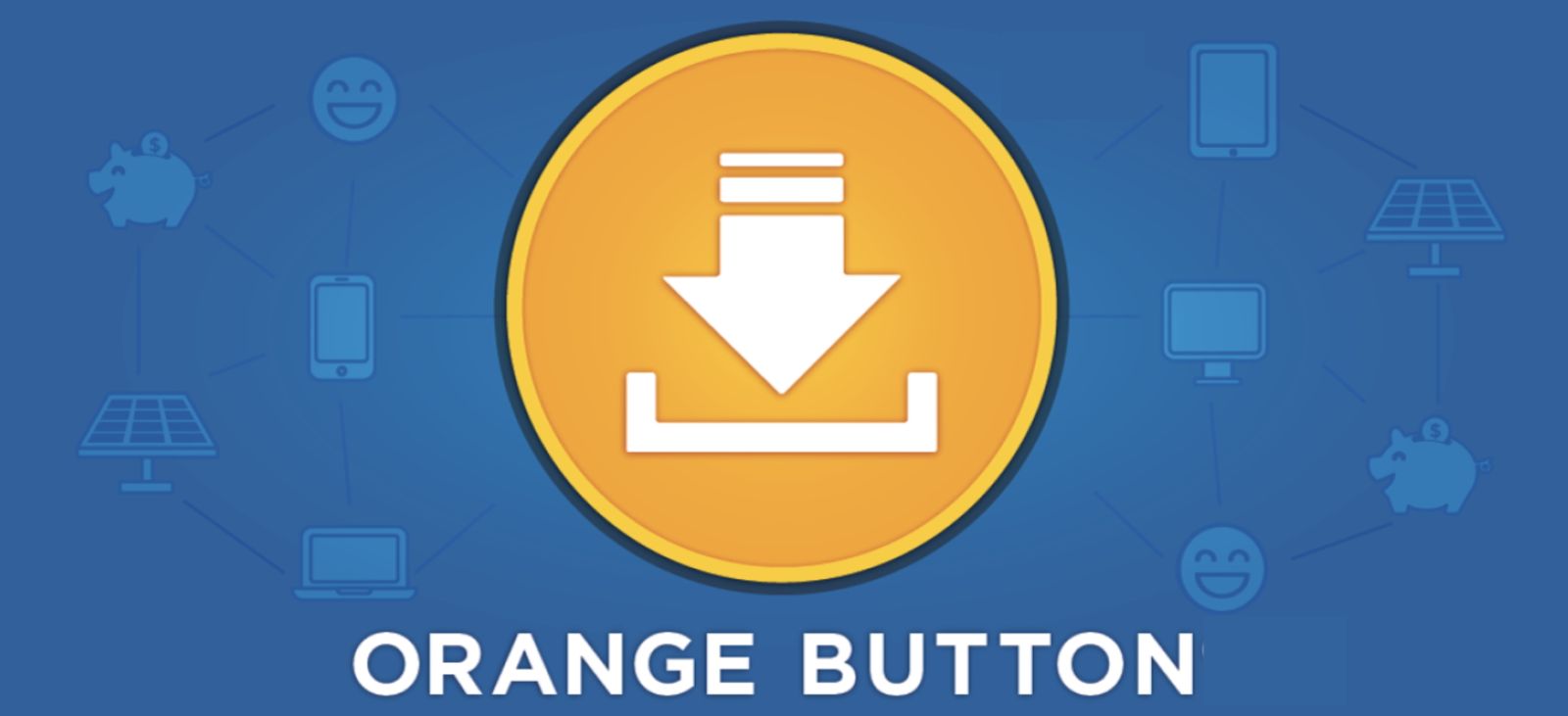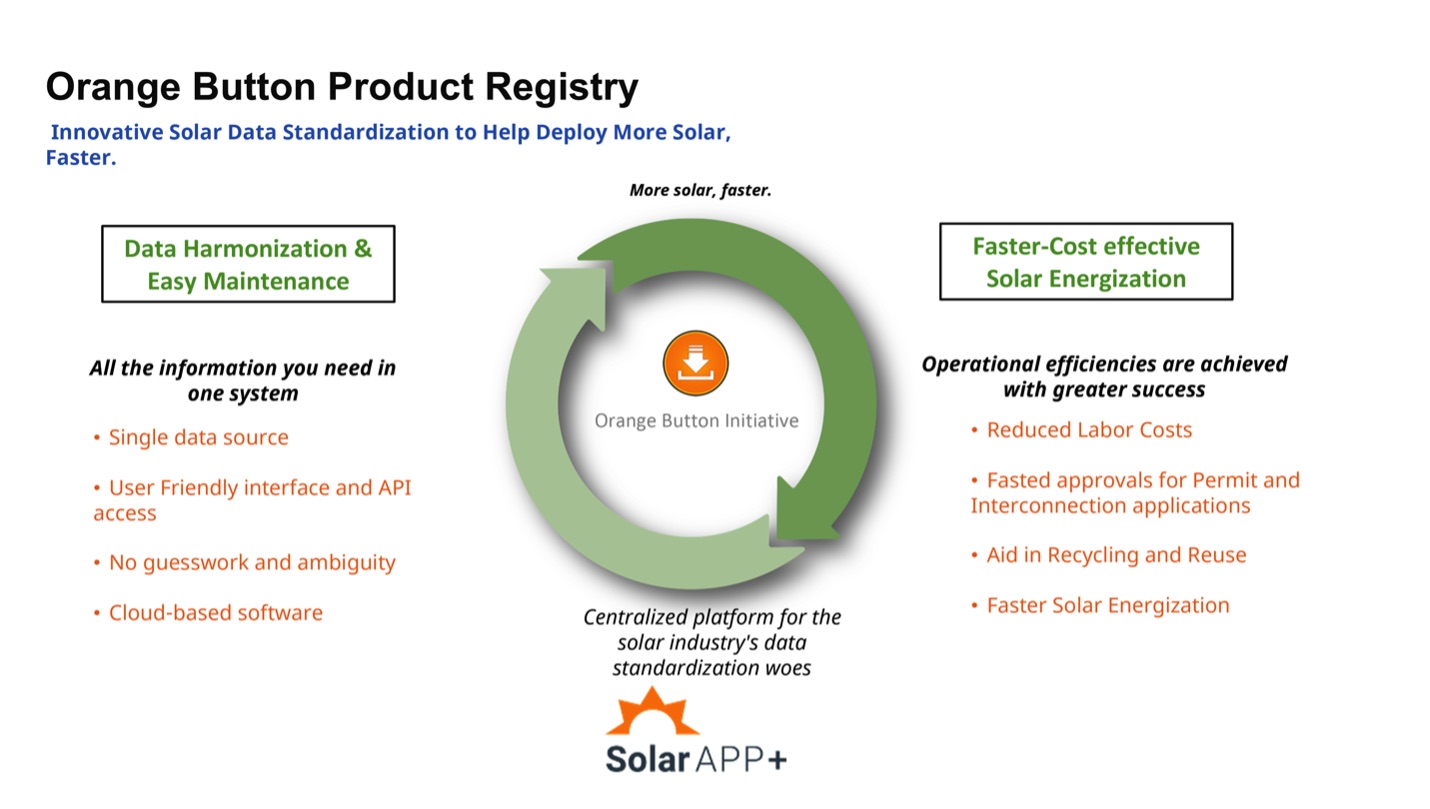The Solar Product Registry Set to Boost Solar Deployment
The urgent need to accelerate solar installations across the United States stands at the forefront of the nation's commitment to significantly decarbonize the energy grid in the fight against climate change. Achieving this ambitious target necessitates a concerted effort to overcome the existing barriers to rapid expansion. Streamlining the installation process, improving regulatory frameworks, and standardizing product names and specifications across the solar and clean energy industries, are crucial steps towards harnessing the full potential of solar.
In this context, the Orange Button Initiative is a beacon of innovation through its introduction of both a uniform data exchange standard, and pivotal reference datasets that directly impact all sectors of the solar-related industries — manufacturing, distribution, purchasing, design, implementation and permitting.

Genesis
Originating in a collaborative effort initiated by the U.S. Department of Energy in 2016, the Orange Button (OB) Initiative was born out of the urgent need for standardized solar project data. The fragmented nature of data management in the solar industry, characterized by inconsistent terms and datasets across hundreds of categories and tens of thousands of products, has long been a significant barrier to efficient project design and implementation.
Recognizing this, the OB initiative has sought to unify the industry under a common data language, facilitating smoother transactions and interactions among stakeholders including governments, utilities, financiers, and solar and clean energy companies.
Two pivotal reference datasets
Central to the Orange Button Initiative are two pivotal reference datasets: the AHJ (Authority Having Jurisdiction) Registry and the Solar Product Registry.
The AHJ Registry is a comprehensive database designed to assist solar installers in navigating the intricate web of permitting jurisdictions across the United States. With more than 18,000 jurisdictions and varying regulations, the AHJ Registry serves as an invaluable tool for quickly identifying relevant authorities and their requirements, thereby expediting the permitting process.
By providing fast and easy lookup for the actual AHJ applicable to a given solar site location, as well as the relevant local inspection requirements, the registry has been a major contributor to installers across the nation being able to cut their permitting times from weeks to days and even hours. The AHJ registry has earned widespread industry recognition and boasts over 300,000 monthly visitors.

Establishing data standards
Building on the success of the collaboration that led to the launch of the AHJ Registry, the OB initiative has focused on establishing a Solar Product Registry as the key to resolving the next major obstacle to accelerating solar deployment. The core of the Initiative lies in its open-source data exchange standard designed to simplify and organize the vast amounts of data involved in solar projects.
This standard encompasses everything from common terminology to interoperable software tools, providing a solid foundation for data handling across the industry. Spearheaded by leading commercial and non-profit organizations, the initiative has quickly gained momentum, drawing in more than 600 companies to contribute to its development.
Enhancing product selection
The Solar Product Registry addresses a critical challenge in the installation process: the efficient selection and specification of solar products for each site design and delivery. The inconsistency in product naming and specifications frequently leads to incompatible product choices, failed or delayed implementations, inefficiencies, and lost sales. The Product Registry centralizes information on more than 20,000 solar and energy storage products, standardizing data and making it easily accessible. This not only aids in product selection but also fosters a more competitive and efficient market.
Leveraging the Product Registry, OB has a secondary objective— to establish industry standards for solar product warranties and insurance. These key stakeholders and end-users of the Product Registry have a pivotal role in deriving value from this solution, by enabling them to identify opportunities for waste reduction and resource optimization, while meeting their business requirements.
Collaborative industry engagement
The OB also welcomes collaborations with other technology providers to ensure
seamless access to Product Registry via API. As technology continually evolves, OB aims to align with industry best practices, enabling the Registry to be enhanced by state-of-the-art technology that requires minimal ongoing adjustments and maintenance.
The integration of Orange Button standards into solar business applications is another cornerstone of the initiative's success, offering seamless data integration and streamlined workflows for all vendors in the solar industry.
Jan Rippingale is Founder and CEO of Blu Banyan, which provides Solar, Construction, and NetSuite end-to-end business management solutions and services.
Blu Banyan | blubanyan.com
Author: Jan Rippingale
Volume: 2025 July/August












